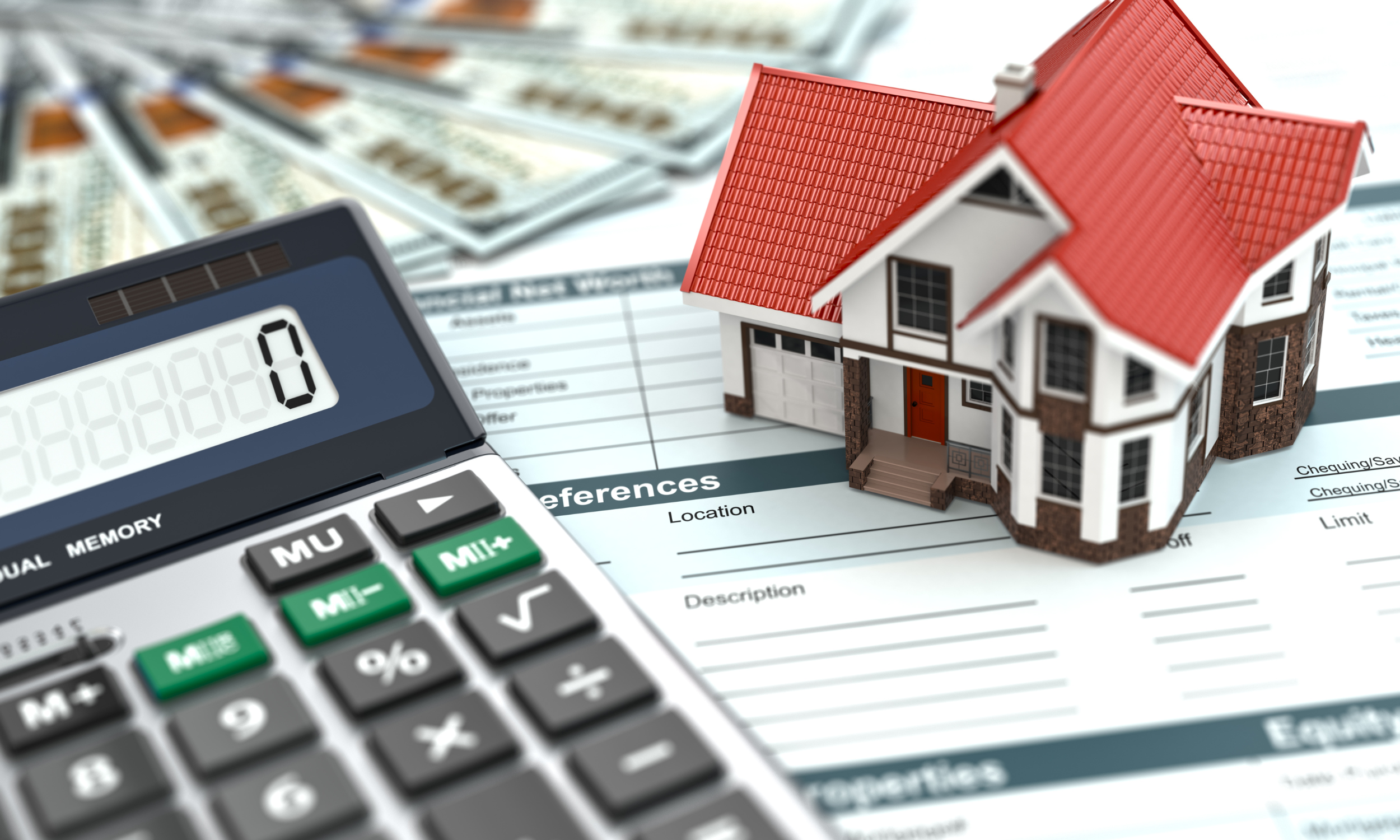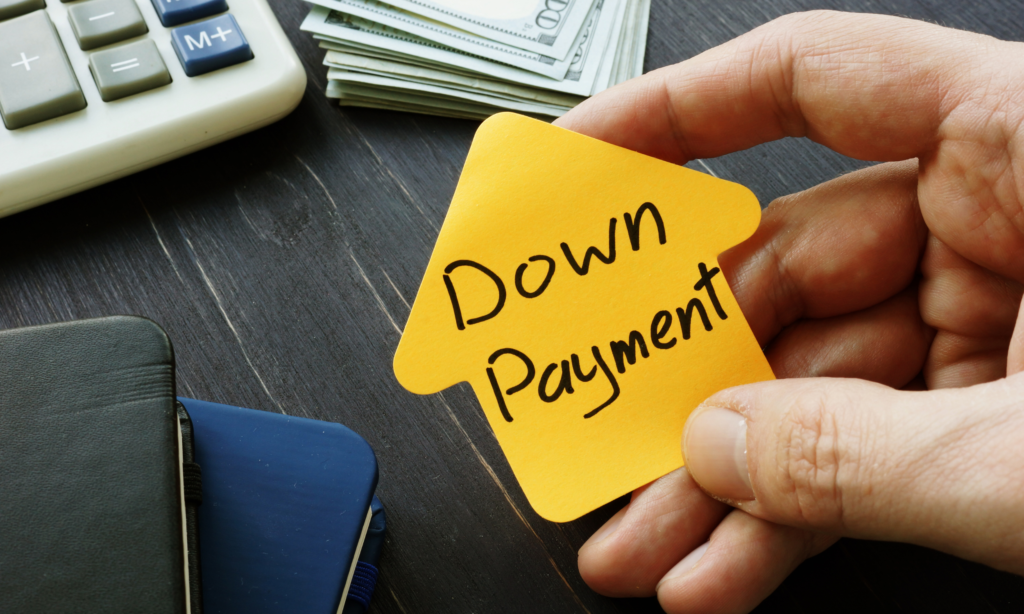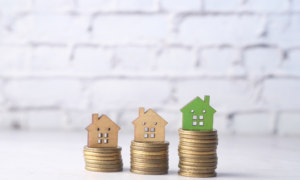If you’re considering purchasing your first home, the down payment can be a source of anxiety. According to a study conducted by NerdWallet, 44% of respondents cited a lack of a down payment as a barrier preventing them from buying a home.
Saving enough money for a down payment is not always straightforward. While many believe a 20% down payment is necessary, that’s not always the case. In reality, it’s possible to purchase a home with a smaller down payment.
Common misconceptions about down payments:
You Don’t Always Need a 20% Down Payment
A 20% down payment is often considered ideal for homebuying because it helps you avoid paying private mortgage insurance (PMI). However, you can purchase a home with a smaller down payment, even as low as 0%. For eligible homebuyers, lenders may offer down payment options such as:
- 10% or 5% Down Payment: Lenders may provide mortgage options with reduced down payments of 10% or 5% if you’re willing to pay monthly PMI.
- 3.5% Down Payment with FHA Loan: You can forgot the conventional loan and opt for a Federal Housing Administration (FHA) loan with as little as a 3.5% down payment if you qualify.
- 0% Down Payment with USDA Loan: If you choose to buy in a more rural area, you may qualify for a USDA loan with no down payment required.
- 0% Down Payment with VA Loan: If you’ve served in the military, you have the option of a 0% down payment with a VA loan.
Is Paying Mortgage Insurance Smarter Than Making a Bigger Down Payment?
There are two main options when buying a home: pay private mortgage insurance (PMI) or make a larger down payment. Each option has its own pros and cons.

Private Mortgage Insurance (PMI): This is a fee paid to the lender to protect them in case you default on your loan. It’s typically required for down payments less than 20% of the home’s value.
A larger down payment can help you reduce the amount of interest you pay over the life of the loan and avoid having to pay PMI.
Which is better? The answer depends on your financial situation. If you have the means to make a larger down payment, it’s the better long-term choice. However, if you don’t have enough funds, PMI may be a feasible option.
Compare your options: Before deciding, compare your options. Use a mortgage calculator to see how much you would pay over the life of your loan with each choice.
Consult a financial expert: A financial expert can help you understand your options and make the best decision for your situation.
There’s no one-size-fits-all answer to this question. The best choice for you will depend on your individual financial situation and goals.
Advice for you: If you’re considering a smaller down payment, try to make additional payments early on to reduce your principal balance and get rid of PMI sooner.
You can also look for loans with reduced PMI. These loans often require a good credit score and higher monthly payments.
Can You Take Out a Loan for a Down Payment?
When buying a home, you typically need to make a down payment, often around 20% of the home’s value. If you don’t have enough money for a down payment, there’s nothing wrong with receiving assistance for your down payment, as long as it’s a gift. If the lender suspects that the amount might be a loan, the repayment of the mentioned loan will be included in the mortgage amount for your home.
When purchasing a home, you often need to make a down payment, typically around 20% of the home’s value. If you don’t have enough funds to pay this upfront, there’s nothing wrong with receiving assistance. However, it must be a gift. If the lender suspects that this amount might be a loan from elsewhere, the repayment of the mentioned loan will be included in the mortgage amount for your home.
Gift money regulations: Not all lenders accept gift money for down payments. Some lenders may require the gift giver to sign an agreement confirming that the amount is a gift and not a loan, and stating that the gift giver has no intention of repayment.
Benefits of using gift money:
- Reduce the amount you need to borrow from the lender.
- Lower the amount of interest you’ll pay over the life of your mortgage.
- Increase your chances of getting approved for a mortgage.
Should You Put More Than 20% Down on a Home?
When buying a home, you typically need to make a down payment, often around 20% of the home’s value. This helps you avoid paying private mortgage insurance (PMI). If you have the means to save more than 20%, you might wonder if you should make a larger down payment. There are some reasons to consider this, such as:

Lower interest rates: Some lenders offer lower interest rates for mortgages with larger down payments because they see higher down payments as less risky.
Lower monthly payments: You’ll have to pay less on your mortgage if you make a larger down payment because you’re borrowing less from the lender.
Which is best for you? The answer depends on your financial situation and goals. If you have the means and want to secure lower interest rates and lower monthly payments, making a larger down payment may be the best choice. However, if you’re short on funds or prefer lower monthly payments, a 20% down payment may be a better option.
Ultimately, the decision of whether or not to put more than 20% down on a home is a personal choice. There are both pros and cons to consider, and the best choice for you will depend on your individual financial situation and goals. It is always a good idea to consult with a financial advisor before making any major financial decisions, such as buying a home.




